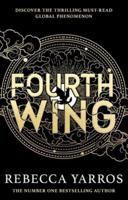Publisher's Synopsis
IT is a common saying that thought is free. A man can never be hindered from thinking whatever he chooses so long as he conceals what he thinks. The working of his mind is limited only by the bounds of his experience and the power of his imagination. But this natural liberty of private thinking is of little value. It is unsatisfactory and even painful to the thinker himself, if he is not permitted to communicate his thoughts to others, and it is obviously of no value to his neighbours. Moreover it is extremely difficult to hide thoughts that have any power over the mind. If a man's thinking leads him to call in question ideas and customs which regulate the behaviour of those about him, to reject beliefs which they hold, to see better ways of life than those they follow, it is almost impossible for him, if he is convinced of the truth of his own reasoning, not to betray by silence, chance words, or general attitude that he is different from them and does not share their opinions. Some have preferred, like Socrates, some would prefer to-day, to face death rather than conceal their thoughts. Thus freedom of thought, in any valuable sense, includes freedom of speech...John Bagnell Bury, FBA was an Irish historian, classical scholar, Medieval Roman historian and philologist. He objected to the label "Byzantinist" explicitly in the preface to the 1889 edition of his Later Roman Empire.


























